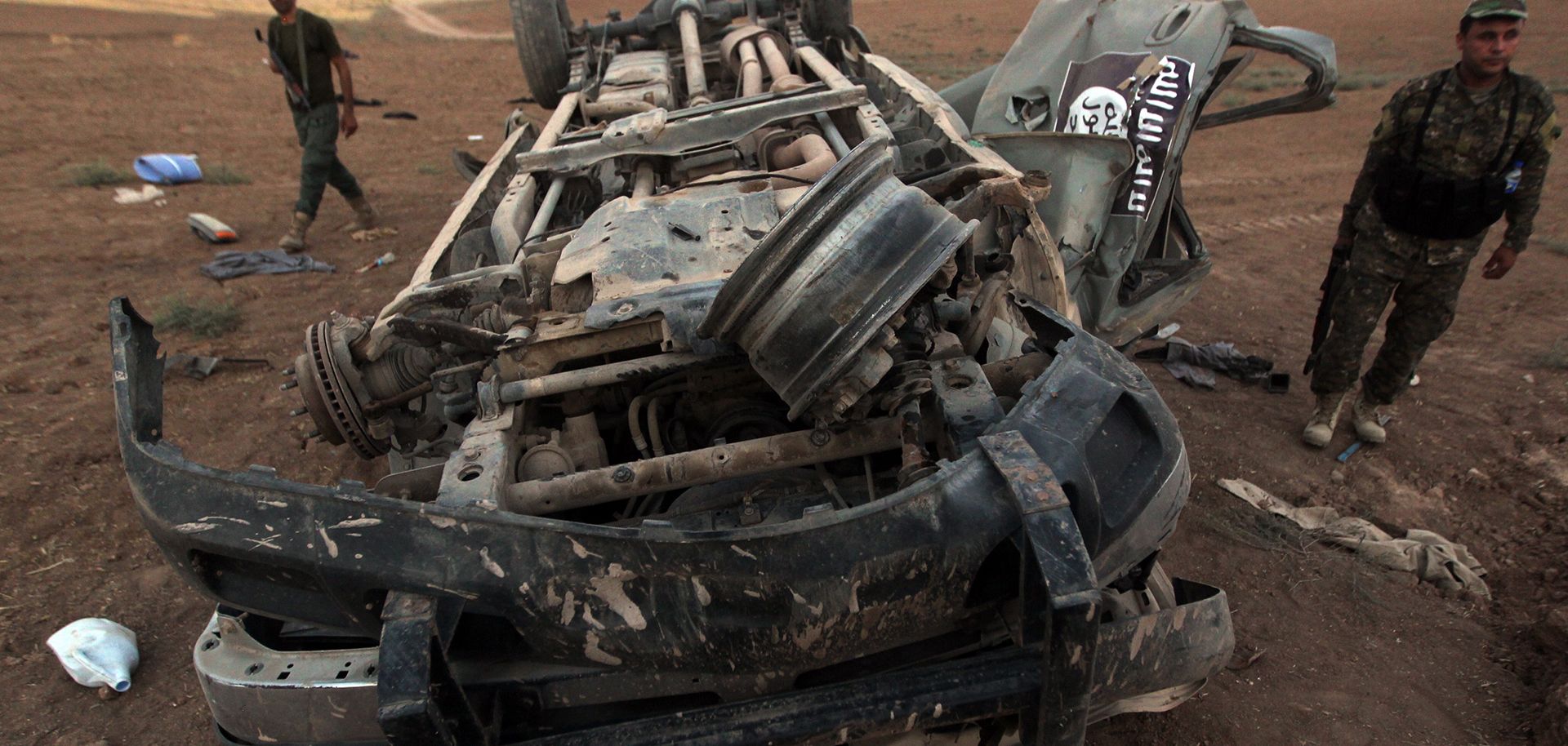GLOBAL PERSPECTIVES
Anticipating the Enemy

Dec 16, 2015 | 08:54 GMT

Peshmerga fighters inspect the remains of a car, bearing an image of the trademark jihadist flag, which reportedly belonged to Islamic State (IS) militants after it was targeted by an American air strike in the village of Baqufa, north of Mosul, on August 18, 2014. Kurdish peshmerga fighters backed by federal forces and US warplanes pressed a counter-offensive Monday against jihadists after retaking Iraq's largest dam, as the United States and Britain stepped up their military involvement.
(AHMAD AL-RUBAYE/AFP/Getty Images)
Subscribe Now
SubscribeAlready have an account?
